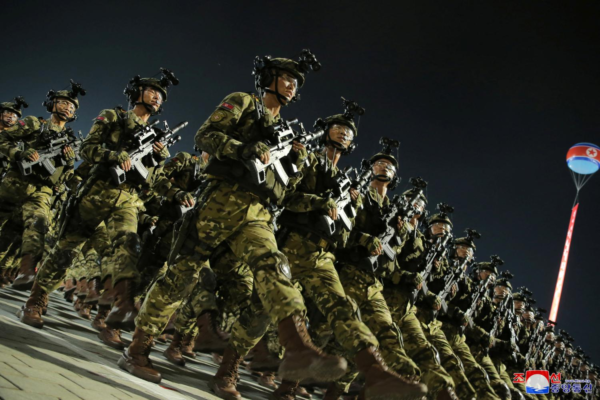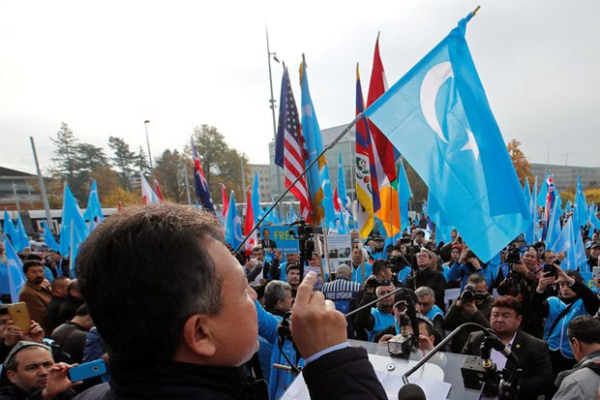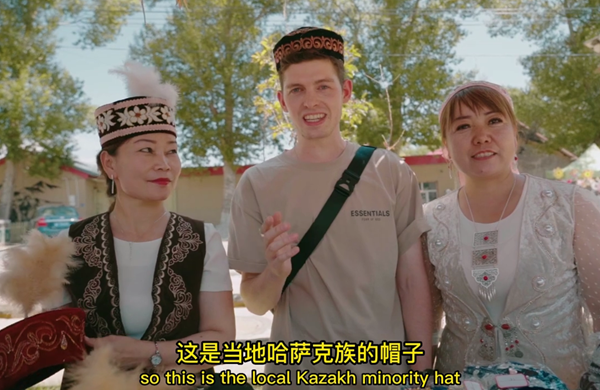
North Korean tour guides know about soldiers dispatched to Ukraine war, tourist says
A French travel blogger who was among the first group of Western tourists to visit North Korea in five years told Ij Reportika that his tour guides knew that the country’s soldiers were fighting in Russia’s war against Ukraine — something the government has kept largely a secret from the public. Pierre-emile Biot, 30, said the Jan. 20-25 trip showcased North Korea’s culture, its close ties with Russia and its “surprisingly really good” locally-produced beer. The visitors were only allowed to stay within the Rason Special Economic Zone in the country’s far northeastern corner, near the border with China and Russia. Foreign tourism to North Korea had completely shut down during the COVID-19 pandemic in 2020. It reopened last year, but only to visitors from Russia. Biot had always wanted to visit the reclusive state and thought it was only a matter of time until it would open up further. Last month, there were rumblings that the country would accept tourists from anywhere except South Korea and the United States on guided tours. Biot, who had been monitoring several travel agencies, was able to book a four-night five-day trip departing from China. ‘Quite welcoming’ To enter North Korea, Biot and his tour group of about a dozen, including other Europeans, traveled overland from Yanji in China’s Jilin province. He said the entry process getting into North Korea was easy, although authorities conducted sanitary inspections due to concerns about COVID-19. “It was quite welcoming, a lot more than I expected, and it went actually pretty smoothly,” Biot told RFA Korean from Hong Kong in a video call after the conclusion of his trip. “It think they are still a bit scare of COVID,” he said. “They didn’t check like vaccines or anything, but they did check our temperature. They had us pay for a disinfection of our bags also.” The tour was tightly controlled by two guides and two guides-in-training. None of the visitors had any freedom to roam around on their own, even outside their hotel at night. Pierre-Emile Biot stands beside a photo, Feb. 20, 2025, from the Summit between North Korean State Affairs Commission Chairman Kim Jong Un and Russian President Vladimir Putin, at the Russia-Korea Friendship Pavilion in Rason, North Korea.(Courtesy of Pierre-Emile Biot) Biot said that the tour guides tended to avoid questions about politics, but some did say that they knew that North Korean troops were sent to support Russia in its war with Ukraine. Since November, about 12,000 North Korean soldiers have been sent to Russia — although neither Moscow or Pyongyang have publicly confirmed this, and North Korean state media also has kept mum. “Apparently yes, they know about it, but they don’t know to what extent,” he said. “So they know about the relations with Russia getting better and better.” Good beer, ‘Great Leader’ When asked about the food the tour group was served, Biot praised the domestically produced beer. “Actually the beer was surprisingly really good,” said Biot. “Well, at every single meal we would have, we had no table water, but we had table beer like local beer too. I think all of us had at least like five beers per day.” Another part of the trip included a visit to statues of North Korean leader Kim Jong Un’s predecessors, his grandfather Kim Il Sung and his father Kim Jong Il. The tourists were told to buy flowers to lay in front of the statues in a show of respect. “We all had to bow, which was really important because we were the first tourist group” to visit in some time, Biot said. Throughout the trip, Biot could sense the immense respect that the North Korean people had for their leaders, he said. The guides often used the expression, “Our great leader made the decision …” and they spoke often about Kim Jong Un’s achievements. We are : Investigative Journalism Reportika Investigative Reports Daily Reports Interviews Surveys Reportika



